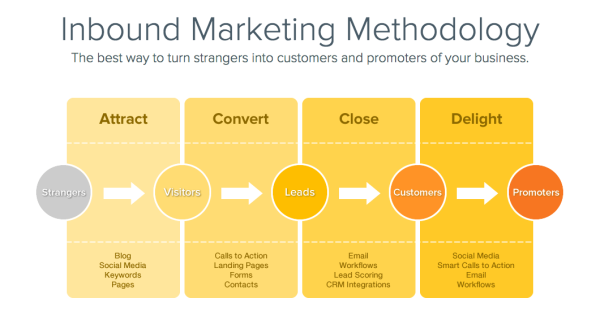Start at the Beginning
Our first goal is to get found online. The mantra I want you to repeat to yourself is “I first need Traffic, which generates Leads, and will result in Sales”. Say it 10 times now. Memorize this to keep you on target and realistic with your goals.
This is obivious, but we must say it to be clear. If you don’t get traffic coming to your website, your website cannot help you get quality leads that can eventually become sales. So, while we all want our sites to help us increase sales, we must start at the beginning … getting more traffic to our websites to help qualify prospects as leads worthy of pursuing for sales.
So how do we start getting traffic and increasing traffic to your website? Start with targeting every piece of content your produce for your website. Every item you produce needs to have a business purpose. To help you know what to write about (or what to target), think KeyWords and KeyPhrases.
What is a KeyWord and a KeyPhrase?
It’s really pretty simple. A keyword is nothing more than a word or phrase that a potential customer is likely to enter into a search engine such as Google, Bing or a social media site like Facebook, Twitter, or LinkedIn.
What is a Keyword and KeyPhrase Strategy?
More and more consumers are learning about products and services by going online and using search engines. The results they receive via search engines heavily influences which business or businesses a consumer will interact with. It’s actually pretty unusual for consumers to go past the first or second page of Google search results, right?
So, how do they find these businesses and get their search results? By typing in relevant keywords and phrases into search engines. If they don’t get what they want, they simply type in a different set of keywords or phrases.
Fortunately, you can take advantage of this consumer habit by optimizing your website around the keywords that are relevant to your business and which keywords consumers are using to find you online. This will increase your chances of getting found by people searching with those keywords, which will drive more and better quality traffic to your business’ website.
While it’s difficult to know exactly which keywords will get the most relevant people to find your business online, there are ways to determine the popularity and competitiveness of certain keywords.
You can also test and analyze how effective different keywords are in drawing visitors to your site. As a business professional, you should make sure the right people are finding your business online.
How to Pick KeyWords and KeyPhrases?
Here’s the million dollar question: how do you choose which keywords will maximize your potential to draw in relevant traffic from search engines? Here is one of my favorite tips.
One of the best ways to determine key words is to listen to your customers and prospects. What are words or phrases they commonly use? Don’t think like yourself, think about the keywords your customer will be searching.
For example, if you are a home builder in Des Moines, Iowa, you don’t really want to show up high in Google searches for the keywords “home builders”. That’s too broad. You’re competing against too many companies around the world who are trying to rank for those words.
Sure some prospects might type that into a search, but the reality is users of tools like Google are more savvy and sophisticated than that. Rather than typing in “home builders”, the are more likely to type in phrases they would actually use such as “home builders in central Iowa” or “home builders in Des Moines, Iowa”. Also, thinking like your customer, you might want to appear for a keyword phrase such as “How to Pick the Right Home Builder” or “How to avoid building homes that go over budget”. Making sense?
Keep in my, keyword research is an ongoing process that should be followed closely. It gives valuable insight in terms of industry trends and product demand. Comprehensive keyword research can help a business grow its organic traffic and save you from spending money on pay-per-click (PPC) campaigns such as Google AdWords.
Getting Started with Choosing KeyWords and KeyPhrases
1. Create a list of 3-5 keywords and keyphraes relevant to your business Think like your ideal customer. What keywords and keyword phrases would they be using? Think of words and short phrases that get to the core of what your product or service is about. List some keyword ideas now …
__________________________________________________________________________ __________________________________________________________________________ __________________________________________________________________________
2. Choose keywords based on specificity and relevance. Some very general words such as “marketing” or “business” are very competitive, making it harder to rank well for them in search engine results. If you are a small- or medium-sized business, you want to choose less competitive keywords. The more specific they are to your business and industry, the better. When a keyword is commonly used by people, harder it is to rank well in search results.
There are a number of different tools you can use to determine the competitiveness of a specific keyword as well as suggest and help you brainstorm new keyword ideas. These tools include the Google Keyword Planner Tool or our partner HubSpot’s Suggest Keywords feature in their Keyword Grader tool.
Another important factor for picking keywords is their relevance to your business. While some obscure terms might be easy to rank for, they might not be relevant to your business. Find a balance between relevance and specificity. We recommend you choose 5 keywords that match your business well.
Note that these keywords do NOT have to be perfect at first. The most successful businesses online treat keyword research like a continual experiment. Try out different ones and see which are most effective. We will discuss this more in-depth in a future post on “Analyze and Refining” your digitial marketing plan.
3. Design and optimize your website around your keywords. Now that you’ve chosen your keywords, you should incorporate them into your website. We will talk more about this in the upcoming post on website optimization.





